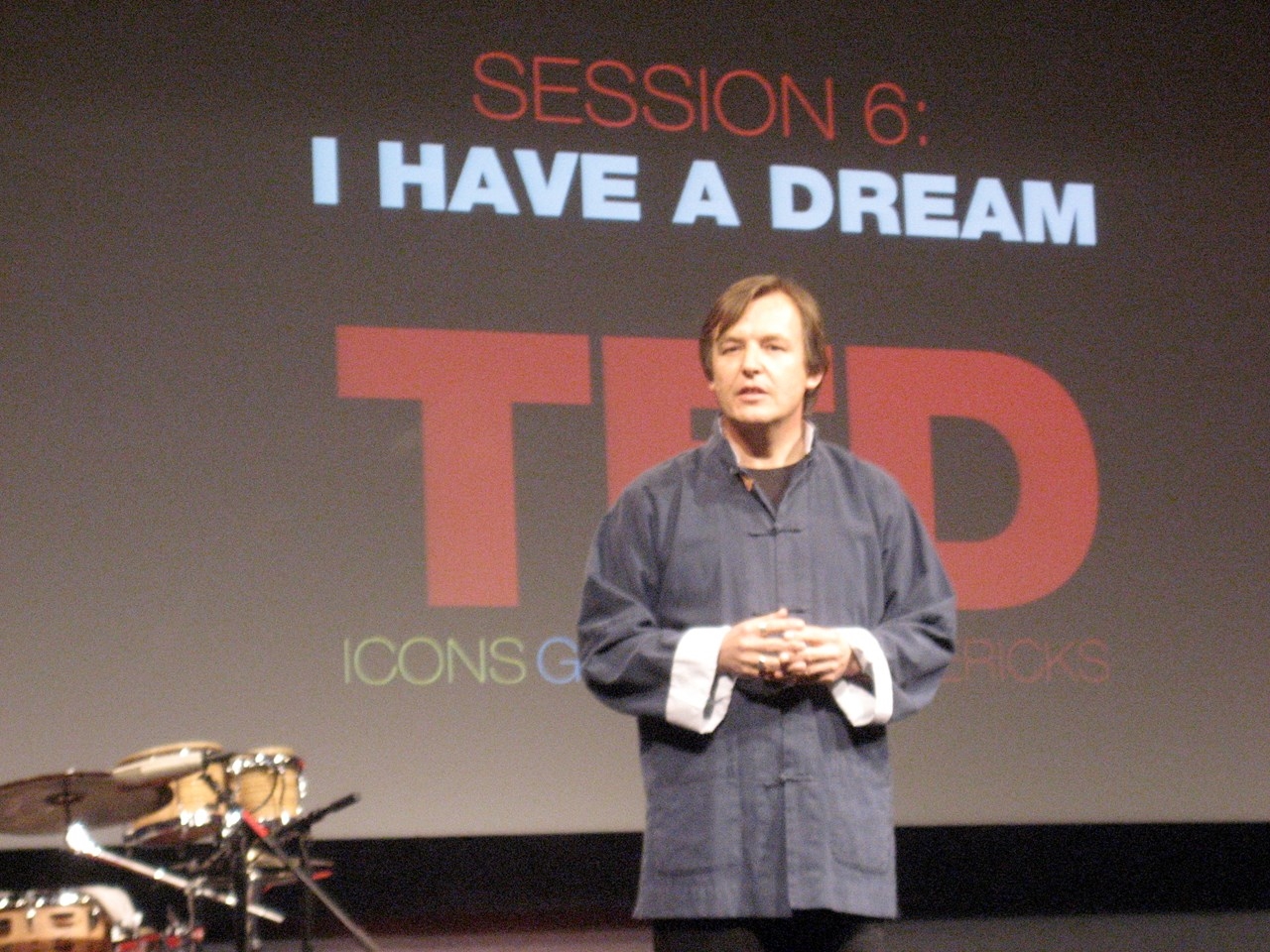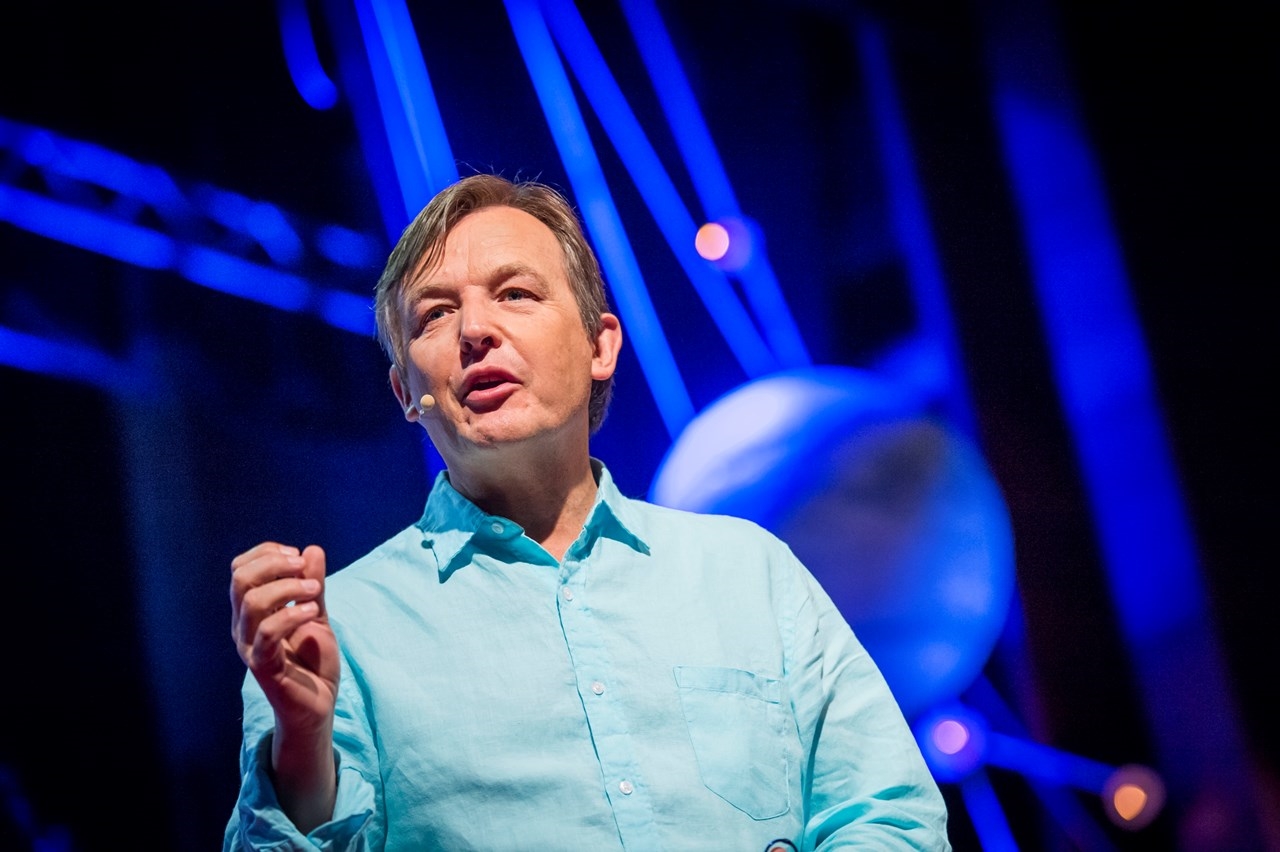TED — the global platform famous for its short, powerful talks — would look very different today without Chris Anderson. As curator and longtime leader of TED, Anderson has turned a modest conference into a worldwide phenomenon, giving voice to scientists, artists, activists, and thinkers who believe that one good idea can change the world. And, although Anderson wasn’t the founder of TED, he reshaped it - he transformed a relatively unknown conference into a global platform and opened access to ideas that had previously reached only small audiences. Under Anderson’s reign, TED became a space where a wide range of voices could be heard and where knowledge and inspiration were shared more openly.
Early Life & Publishing Roots
Chris Anderson was born in 1957 to British parents working as medical missionaries. He spent his early years in Pakistan, India, and Afghanistan before moving to boarding school in Bath, England. Later, he attended the University of Oxford, where he initially studied physics before changing to philosophy, politics, and economics, graduating in 1978.
Anderson began his professional life in journalism, working across newspapers and radio before spending time in the Seychelles producing an international news service.
When he returned to the United Kingdom in 1984, he became intrigued by the fast-growing home-computer movement. This interest led him into the world of tech publications, where he served as an editor for two of the country’s early computer magazines, Personal Computer Games and Zzap!64. Just a year later, he launched his own company, Future Publishing, with a modest bank loan. What began as a small operation focused on computer-related titles quickly expanded into magazines covering cycling, music, video games, technology, and design. Under his leadership, the company grew at an extraordinary pace, doubling in size every year for seven years.
In 1994, Anderson relocated to the United States. There, he founded Imagine Media, which produced Business 2.0 magazine and later created IGN, a major online destination for video-game enthusiasts. He eventually brought Imagine Media and Future Publishing together, taking the merged company public in London in 1999 under the name Future US. At its height, the company produced 150 magazines and online platforms and employed around 2,000 people.
With the success of these ventures, Anderson created the Sapling Foundation, a private nonprofit dedicated to exploring new ways to address major global challenges through media, technology, entrepreneurial thinking, and the power of ideas.
Transforming TED — Ideas Worth Spreading
 Chris Anderson 2007Wiki
Chris Anderson 2007Wiki
In 2001, Anderson shifted his focus from for-profit publishing to a new, more ambitious mission. Through the Sapling Foundation, he acquired the then-small annual conference known as TED (Technology, Entertainment, Design). That move marked the beginning of a radical transformation.
Under his stewardship:
In this talk, Anderson explains what separates a truly great talk from a mediocre one. He highlights the value of honesty, structure, and a journey that resonates — rather than relying on gimmicks or over-produced theatrics.
blog.ted.com/chris-anderson-on-what-makes-a-great-talk-great
 WikiChris Anderson
WikiChris Anderson
Author, Educator & Thought Leader
In 2012, Anderson was honored with an Edison Achievement Award for his commitment to innovation throughout his career.
In 2016, Anderson published TED Talks: The Official TED Guide to Public Speaking, a best-selling manual distilling his years of experience into practical advice for anyone who wants to “speak to the world.”
In December 2019, Anderson was awarded an Honorary Doctorate of Education by the University of Bath. The award recognizes Anderson's 'outstanding services to publishing, education, technology and business'.
In January 2024, Anderson published a book titled Infectious Generosity: The Ultimate Idea Worth Spreading.
After nearly 25 years leading TED, Anderson announced a transition — intending to hand over the organization to whoever can best guide its future. In October 2025, Anderson announced that Sal Khan would succeed him as TED’s "Vision Steward", joining TED’s board to help guide the organization’s long-term mission. Anderson remains on TED’s board and continues to participate in fundraising and programming.
Also in October 2025, Anderson co-founded the All Aboard Coalition, focused on climate action and mobilizing businesses to help address global environmental challenges. All Aboard is a collaborative effort between 14 venture capital and private equity firms to provide funding to help companies move from the pilot stage to commercial operation and overcome the "valley of death" funding gap. It’s a shift that underscores his belief that ideas are the seeds, but action is what grows change.
Page created on 11/27/2025 3:52:38 PM
Last edited 11/27/2025 4:06:13 PM
